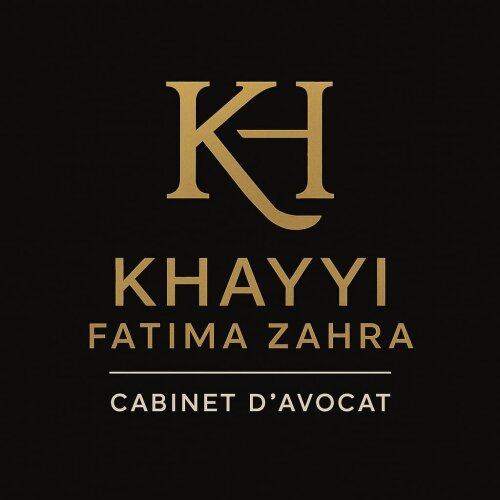Best FDA Law Lawyers in Rabat
Share your needs with us, get contacted by law firms.
Free. Takes 2 min.
List of the best lawyers in Rabat, Morocco
About FDA Law in Rabat, Morocco
FDA Law, commonly referred to as Food and Drug Law, encompasses the regulations and standards that govern the production, importation, exportation, distribution, and sale of food, pharmaceutical products, cosmetics, and medical devices. In Rabat, Morocco, these areas are supervised by national bodies and must comply with both local and international standards. The Moroccan Food and Drug Authority operates under the Ministry of Health, ensuring that only safe and effective products reach the Moroccan market. Compliance with FDA Law helps to protect public health and ensure consumer trust in available products.
Why You May Need a Lawyer
Legal guidance in FDA Law may be necessary for a variety of reasons. Common situations include:
- Registering a new food, cosmetic, or pharmaceutical product with the Moroccan authorities
- Understanding the licensing process for importing or exporting regulated products
- Navigating compliance issues following inspections or investigations
- Responding to accusations of regulatory violations or non-compliance
- Drafting and reviewing contracts with suppliers or distributors
- Dealing with product recalls or public health alerts
- Protecting intellectual property rights related to food and drug products
- Handling disputes involving mislabeling, counterfeit products, or unapproved ingredients
A lawyer with expertise in FDA Law can safeguard your interests, help you avoid costly mistakes, and ensure you remain compliant with all legal requirements.
Local Laws Overview
Moroccan FDA Law is shaped by the following legal frameworks:
- Law 28-07 governs food safety, stipulating requirements for food operators, hygiene, and public health risk management.
- Law 17-04 covers the pharmaceutical sector, detailing the process for drug approval, control, distribution, and pharmacy regulations.
- The National Food Safety Office (ONSSA) is responsible for food regulation, surveillance, and enforcement.
- The Direction du Médicament et de la Pharmacie (DMP) under the Ministry of Health regulates pharmaceuticals, from research and clinical trials to retail and distribution.
- Compliance with Moroccan standards (NM) and international standards (such as Codex Alimentarius and WHO guidelines) can also be required, especially for export-oriented businesses.
Strict labelling requirements, mandatory product testing, regular inspections, and approvals for advertising claims are all key elements. Violations can result in product seizures, recalls, fines, and even criminal penalties in severe cases.
Frequently Asked Questions
What is required to get a food product approved for sale in Morocco?
You must register the product with ONSSA, provide documentation regarding ingredients and processes, pass safety testing, and meet all labeling requirements.
How are drugs registered and approved in Morocco?
Pharmaceutical products must be submitted to the DMP, where they undergo evaluation for safety, efficacy, and quality before receiving approval for manufacture or importation.
Are there specific labeling requirements for foods and drugs?
Yes, labeling must include the name of the product, ingredient list, country of origin, expiration date, batch number, and information about allergens or additives. Certain health or nutritional claims are regulated.
Can I advertise my food or drug product freely in Morocco?
Advertising of regulated products must comply with Ministry of Health guidelines and can be subject to pre-approval, particularly for health-related claims.
What are the penalties for non-compliance with FDA Law in Morocco?
Penalties can include fines, suspension or cancellation of licenses, product recalls, confiscation of products, or even criminal charges in severe cases.
Does Morocco recognize international certifications for FDA-regulated products?
International certifications (such as those from the EU, WHO, or Codex Alimentarius) may be considered but do not replace the need for national approval and compliance with Moroccan regulations.
What types of inspections should companies expect?
ONSSA and Ministry of Health carry out both scheduled and surprise inspections, focusing on hygiene, documentation, product quality, and facility standards.
Is it mandatory to appoint a local representative or agent?
Foreign companies usually must appoint a local legal representative to manage regulatory submissions and interact with the authorities.
How can companies handle product recalls or withdrawals?
There are formal protocols for recalls, which require prompt notification to authorities, public warning announcements, and coordination with ONSSA or DMP for safe removal of the product.
Can small businesses or artisans sell food products legally?
Yes, but they must still follow safety, registration, and labeling regulations appropriate to the type and scale of their production, as well as obtain necessary local permits.
Additional Resources
The following organizations and governmental bodies can provide guidance or official information on FDA Law in Rabat, Morocco:
- Ministry of Health (Direction du Médicament et de la Pharmacie)
- National Food Safety Office (ONSSA)
- Moroccan Institute for Standardization (IMANOR) for local standards
- Pharmacy Council of Morocco
- Moroccan Association of Pharmacists and Health Professionals
Consulting their official publications, guidelines, and announcements can help you stay up to date with changes in laws and procedures.
Next Steps
If you believe you need legal assistance with FDA Law in Rabat, Morocco, consider the following steps:
- Gather all relevant documentation about your product or business, including licenses, certifications, and correspondence with authorities.
- Identify the specific issue or question you need help with, such as product registration, compliance review, or defending against a regulatory action.
- Contact a qualified lawyer specializing in FDA Law or regulatory compliance in Morocco. Ask about their experience with similar cases.
- Schedule a consultation to discuss your situation, legal obligations, and possible solutions.
- Stay informed by regularly checking updates from relevant authorities and professional associations.
Taking these steps promptly will help you ensure compliance, protect your business interests, and avoid unnecessary legal or financial risks.
Lawzana helps you find the best lawyers and law firms in Rabat through a curated and pre-screened list of qualified legal professionals. Our platform offers rankings and detailed profiles of attorneys and law firms, allowing you to compare based on practice areas, including FDA Law, experience, and client feedback.
Each profile includes a description of the firm's areas of practice, client reviews, team members and partners, year of establishment, spoken languages, office locations, contact information, social media presence, and any published articles or resources. Most firms on our platform speak English and are experienced in both local and international legal matters.
Get a quote from top-rated law firms in Rabat, Morocco — quickly, securely, and without unnecessary hassle.
Disclaimer:
The information provided on this page is for general informational purposes only and does not constitute legal advice. While we strive to ensure the accuracy and relevance of the content, legal information may change over time, and interpretations of the law can vary. You should always consult with a qualified legal professional for advice specific to your situation.
We disclaim all liability for actions taken or not taken based on the content of this page. If you believe any information is incorrect or outdated, please contact us, and we will review and update it where appropriate.











